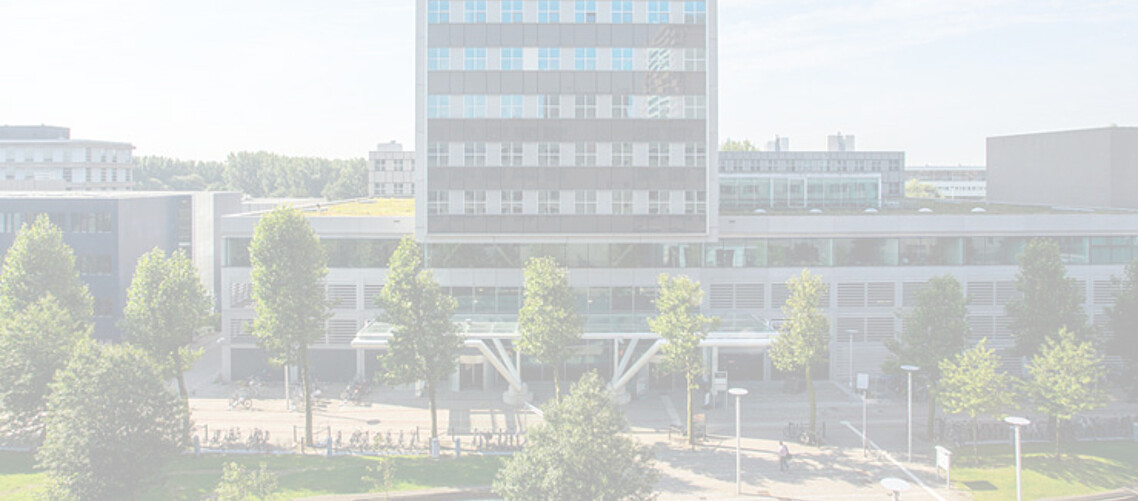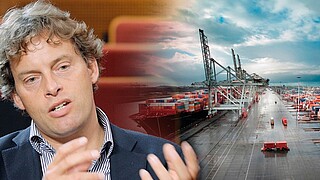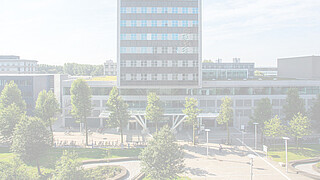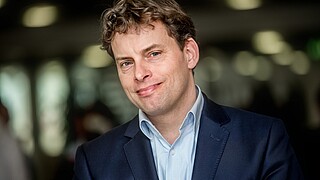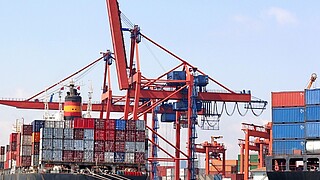The chair, endowed by the Erasmus Trust Fund and created on 1 December 2014, focuses on three topics: co-ordination for sustainable global supply chains, synchromodal transport networks (a flexible and integral deployment of different modes of transport on a network to better meet customer demand and sustainability objectives), and inter-organisational systems in logistics.
Watch the RSM Discovery video in which Rob Zuidwijk explains how academics can help strengthen the port’s logistics.
Co-ordination for sustainable supply chains
The co-ordination required for global supply chains to become more sustainable is not straightforward. “While brand owners feel the pressure of investors and general public to become more sustainable, the upstream companies that cause most of the environmental impacts may need to be stimulated to take action,” says Professor Rob Zuidwijk. “Organisations such as port authorities may play a pivotal role in stimulating networks of organisations to make efforts towards sustainability; the World Port Climate Initiative shows they indeed aim to do so.”
Synchromodal networks
The ‘one size fits all’ approach prevails in the international containerised transport of goods, which has become commoditised. Despite the successful use of standardised steel boxes, global supply chains need transportation solutions that are more responsive as well as very efficient. Professor Rob Zuidwijk argues that transport can be tailored to actual customer demand, while making efficient use of available resources. The academic challenge to originate these synchromodal transport solutions is a focus of his new academic chair.
Inter-organisational systems
The exchange of information is an enabler of operational excellence in the port and in global logistics. Professor Rob Zuidwijk explains: “Companies may see the operational benefits of information exchange, but may be concerned about their competitive position. In any case, it seems pertinent that providers of data are seen as co-producers of information services and are compensated accordingly. This may relieve some of the barriers to the further use of inter-organisational systems in a port environment.”
Significance of Ports in Global Networks
International trade and logistics, and in particular sea ports such as the port of Rotterdam, have witnessed spectacular growth in the last few decades. Next to economies of scale, the developments of the maritime container standard and systems for electronic data exchange between organizations have enabled sea ports to make their operations more efficient. However, there remain challenges and opportunities for the sea port to be an enabling node in the numerous global supply chains it engages with in order to strengthen its competitive position. For instance, the Port of Rotterdam states in its “Port Vision 2030” the supply chain challenges and opportunities at hand, both from its position as a global logistics hub and as an industrial cluster. Example challenges and opportunities are the accessibility of the port both at the sea and the land side, the environmental performance of port and transport operations, and the competitive position of its value adding activities in global supply chains. These challenges and opportunities are not unique to the Port of Rotterdam but are shared by ports worldwide. The chair addresses these challenges.
About Rob Zuidwijk
Rob Zuidwijk received a PhD from Erasmus University in Mathematics. He has held a one-year visiting position at University of California at Los Angeles in 2009/2010. He presently supervises a number of PhD students on port related research.
His work has been published in journals like California Management Review, Transportation Science, Manufacturing & Service Operations Management, Communications of the ACM, and Production and Operations Management. He has participated and coordinated funded research projects in the area of international logistics and container transport.
He teaches freight transport systems, intermodal transportation, international logistics and supply chain management, and inter-organizational systems in logistics to BSc, MSc, and PhD students, and he is also involved in post-experience courses.
Professor Rob Zuidwijk makes a significant contribution to Smartport, a strong research community in port-related research for which RSM and EUR are one of the main stakeholders. He is also Academic Director of RSM’s Executive Master in Customs and Supply Chain Compliance programme, a new part-time master degree programme to increase knowledge about European customs law, international supply and logistics chains and information management which starts at RSM in March.
Rotterdam School of Management, Erasmus University (RSM) is ranked amongst Europe’s top tier business schools for education and amongst the top three for research. RSM provides ground-breaking research and education furthering excellence in all aspects of management and is based in the international port city of Rotterdam - a vital nexus of business, logistics and trade. RSM’s primary focus is on developing business leaders with international careers who carry their innovative mindset into a sustainable future thanks to a first-class range of bachelor, master, MBA, PhD and executive programmes. RSM’s executive education and alumni support services are also offered from its office in the Amsterdam Zuidas business district. www.rsm.nl.
For more information on RSM or on this release, please contact Marianne Schouten, Media & Public Relations Manager for RSM, on +31 10 408 2877 or by email at mschouten@rsm.nl.
